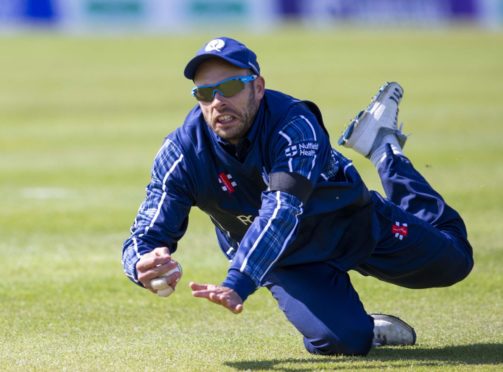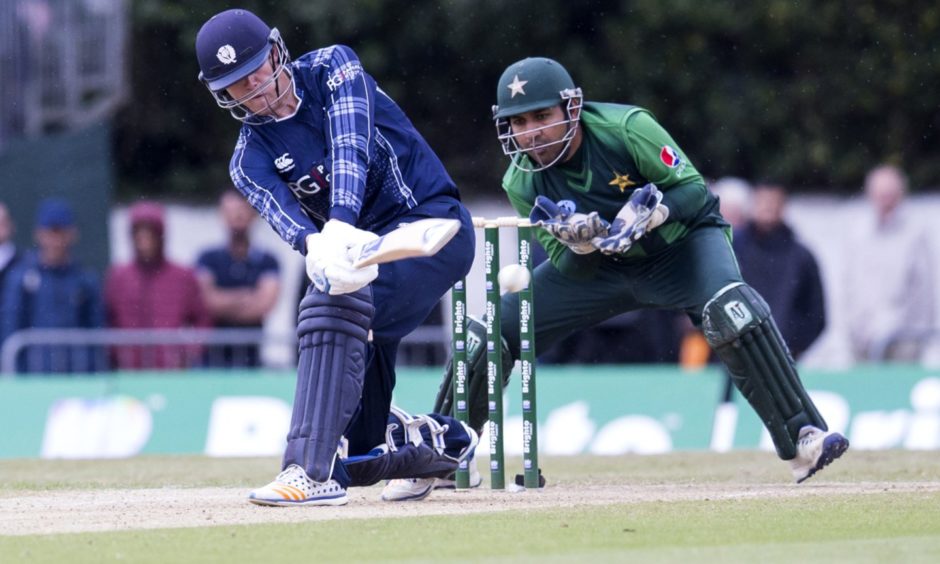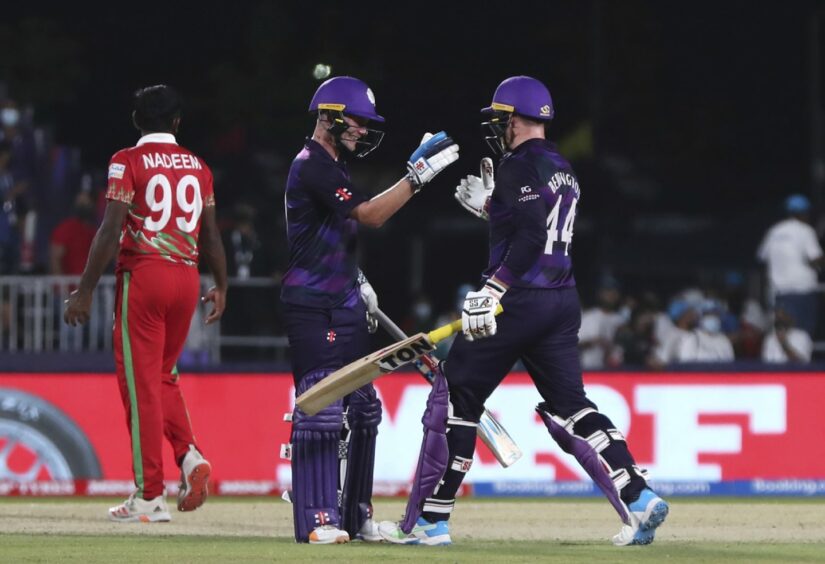If the first week of the ICC T20 World Cup brought unprecedented success for Scotland and the second offered a painful reminder of how swiftly fortunes can change, the next few days have the capacity to develop into a real video nasty.
I can always remember the former Saltires captain Craig Wright telling me that he didn’t mind criticism of his team as long as it was deserved – and since I’m not working in the PR industry, there have to be questions asked about the team’s approach to tackling Afghanistan and Namibia.
There was little to be ashamed about in the defeat to the former, who have a genuinely world-class spin trio in Rashid Khan, Mujeeb Ur Rahman and Mohammad Nabi, but the Scots seem to prefer picking bits-and-pieces cricketers to specialists and, at some point, the failings of several of their leading batsmen will have to be examined, not glossed over.
Any side can have a bad day at the office, but let’s not forget they were 53 for 6 in their opening match of the tournament before Chris Greaves, Mark Watt and the tail-enders retrieved the situation to inspire victory over Bangladesh.
History didn’t repeat itself against the Afghans, with George Munsey and Kyle Coetzer providing initial resistance, as the prelude to a dramatic collapse from 28 for 0 to 38 for 6 and 60 all out in pursuit of 191.
Their opponents are quite literally facing the prospect of being ostracised from the sport after the return to power of the Taliban in Kabul, so it was understandable they flung themselves into the fray with a passion – which continued with their emphatic win over Namibia – but the Scottish bowling was generally too short or gave their rivals too much width. As results go, a 130-run margin is substantial in a Test match. In T20 terms, it is a rout.
I was genuinely expecting Shane Burger’s team to respond with a vengeance two days later when they tackled Namibia – who are ranked below them in the global standings – but if anything, they served up an even worse display.
Too many players aren’t firing
Yes, the contest featured an extraordinary opening over from the unheralded Ruben Trumpelmann and any side would toil to recover from the depths of two for 3. And yes, David Wiese is a Test-class all-rounder who had proved his threat both in earlier contests and when he used to turn out for South Africa.
But still, with Coetzer missing, there was a sense of too many of his colleagues having left their magic behind them in Oman. It’s nigh impossible to defend a total of 109 and although Greaves, Watt and Michael Leask did their utmost, Namibia passed 100 with just four wickets down and the subsequent loss of Wiese and Jan Frylinck came too late to make any difference to the outcome.
In advance of the Super 12, this was a fixture the Scots would have expected to win. Yet, coming hot on the heels of the Afghan debacle, it was a harsh reality check and worse could befall them in the days ahead when they meet New Zealand, India and Pakistan: a trio of genuine global superpowers.
To date, Scotland’s bowlers have outperformed their batsmen, but now they will be facing the likes of Martin Guptill, Kane Williamson, Rohit Sharma, Virat Kohli, Babar Azam and Mohammad Rizwan. These are six of the most destructive strikers in the T20 realm and, given the battle for supremacy in this group, they will be desperate to increase their net run rate.
It’s never sensible to write off Scotland, especially in the knowledge they have already defeated one ICC Full Member – in Bangladesh – at this event. But so far in Sharjah, pivotal duo Calum MacLeod and Richie Berrington have failed to click and collapses have happened too frequently for comfort.
New Zealand are formidable foes
Their English country bowling duo, Josh Davey and Brad Wheal have not been as impressive either. These are key components of the line-up. One doesn’t expect everybody to flourish at the same time. But when they are all having problems, it amounts to a stack of issues for the Scots to solve.
New Zealand will be in positive mood tomorrow, following their comprehensive triumph over India, which has left Kohli’s men on the brink of elimination from a competition where they began as one of the favourites. And in players such as Guptill, Daryl Mitchell, Williamson, Trent Boult, Tim Southee, Mitchell Santner and Adam Milne, the Kiwis have their bases covered. Scotland have it all to do, even if they’re at their best.
Yet there are few other forms of sport where fortunes can change so swiftly. We know from past experience that Munsey, MacLeod, Berrington and the north-east trio, Coetzer, Leask and Matthew Cross, can prosper against the best and they have to keep the faith as they enter these three matches.
It’s obviously preferable that the Scots are still in the heat of battle rather than suffering the same fate as the Dutch and the Irish, who crashed out in Oman.
But they need to demonstrate that they belong in this company and can mount a serious challenge. Can they do it? Yes, they can, but if they don’t up the ante, the consequences could be messy.



